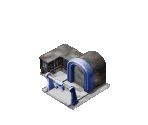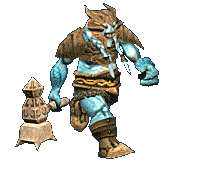Spoiler-free archaeological retrospectives on games and game related books.
Spoiler-free archaeological retrospectives on games and game related books.

| Latest posts: |

Acorn Archimedes - David Braben, 1987

David Braben is most famous for co-creating wireframe space trading sim Elite, a legendary game then and now. His follow up game was a notoriously difficult graphical masterpiece with an interesting footnote in technology history.

BBC Micro - Superior Software, 1986

A childhood classic with brutal difficulty and graphics made before 'dark mode' was a thing. I wanted to review something light after the last few unsavoury stories, but it turns out Stryker's Run's history has links to Hollywood scams and lawsuits from Kevin Costner.

N64 - LucasArts/Factor 5, 2000

Ok may as well do this last one so I don’t have to think about Factor 5 ever again. For a game with a TTG (Time-To-Gungan) of one second, and which is based on something nobody loves, this is actually an enjoyable N64 blast-a-thon.

GameCube - Factor 5, 2003

The final Rogue Squadron game brings the series full circle to repeat all the fatal mistakes of its inspiration. Drama ensues with failure, excuses, bankruptcy and 10 years of legal action.

N64/PC - LucasArts, 1997

After the first two Rogue Squadron retrospectives, I began playing the third and final Rogue Squadron game, RS3: Rebel Strike. After ten minutes it was obvious I had to put it down and revisit the inspiration for the entire series.

GameCube - Factor 5/LucasArts, 2001

Rogue Squadron was a greatest hits of battles from the movies, but Factor 5 hadn’t earned George Lucas’ trust. After the success of the first game they were finally unleashed. It's graphical masterpiece, but is it a glorified tech demo or a genuinely good game?

PS1 - Traveller's Tales, 2000

Traveller’s Tales did once make something other than LEGO games. This kart racer divides gamers and Muppet fans, but there is plenty to do aside from the karting, and some genuinely interesting modes some of which were ahead of it's time.

PC/N64 - Factor 5/LucasArts, 1998

The Star Wars special editions had just been released in cinemas, and Episode 1: The Phantom Menace was about to disappoint millions of fans everywhere. Into this gap stepped Rogue Squadron, one of the last pieces of original trilogy media allowed to continue into the prequel era. This arcade flight sim had an storied development that pushed technology so far that the devs have been called "evil".

PC - Core Design, 1996

From my memories of Tomb Raider I expected a vast, slightly laggy, early-3D, action-oriented, run and gun with awkward platforming. Three decades later what I found was a very measured and meditative experience, and I hope I can convey exactly why.

PC - Westwood, 1997

Command & Conquer: Sole Survivor is one of those rare games that can be considered lost to the mists of the internet. Most good ‘forgotten’ games will still have small but passionate fan communities going on 20 years, while bad ‘forgotten’ games will have thousands of popular YouTube videos trashing them for hits. Sole Survivor is just bad enough to be properly forgotten.

PC - Planet Moon Studios, 2000

Giants is one of a clutch of genre-blending games from the dawn of the 3D era, but was this really an action RTS for the ages, or are we all suffering from the Mandela effect?

GB/NES - HAL Labs/Imagineering, 1990

An in-depth look at the best Ghostbusters games so far and the context around them, featuring Nintendo angel Satoru Iwata, Activision ghoul Bobby Kotick, and Slimer.

PC - Lucas Learning, 1996

Despite being tarnished with an ‘edutainment’ brush, DroidWorks’ core experience is a build-and-test gameplay loop which created a genre for such giants as Kerbal Space Program. Building your own robots and taking them through 3D levels is great fun, and the educational aspect is very well integrated.

SNES - Vision System, 1995

Far from being just another low-effort kart racer, SD F-1 GP is an officially licensed Formula 1 game that is a perfect inventive blend of Mario Kart, F-Zero and Formula 1 (with cute cartoon animal drivers).

PC - Imergy, 2000

In which I turn 1998’s Star Trek: Starship Creator (27% - PC Games Magazine) into an immersive sim. Not content with writing a longer retrospective about Starship Creator than anyone has ever bothered to, I delved into the mission editor in order to see if we could fix the game's problems.

PC - Imergy, 2000

Starship Creator is infamous for being a terribly boring Star Trek game, but it is much more than that. Envisioned as a 90s 'desktop toy', not an actual video game, there is fun to be had for Trek fans. I take another deep dive and, in Part 2, attempt to fix the game using its own mission editor.

PC - Dreamworks Interactive, 1998

A mammoth(!) archaeological retrospective on Jurassic Park Trespasser and why it belongs firmly in the pantheon of gaming history. Digging up its legacy, its contemporaries, faults and successes, and why the developers were so preoccupied with whether or not they could, they didn't stop to think if they should.

C64 - David Crane, 1984 | NES - Bits Laboratory, 1986

The first two of the four Ghostbusters movie tie-in games ask very big questions. Can a video game evoke real emotions? Can it, for example, make you feel like you are in the scene in Ghostbusters where four out of shape, middle-aged men are forced to walk up 22 flights of stairs? Ghostbusters is a decent game until it answers that question with a resounding 'yes'.

Arcade - Atari/Sega/Namco, 1983-2014

Each of the original Star Wars trilogy saw its own arcade cabinet release, and they all follow the same premise: you are sitting in a cockpit blasting your way through a number of famous scenes from the movies. Aside from in Star Wars: Return of the Jedi, which is a top down view, the formula doesn't change, and as a result you can easily trace gaming history and technology improvements from Star Wars in 1983 through to Star Wars Battle Pod in 2014 (and beyond).

Mike Resnick, 2003

The first Tomb Raider book was marketed as a story that ties the fourth and sixth games together, but in fact the only reference is on the first page and then in an epilogue in which the author mistakes the villain of the games for someone Lara cares about. Before we take a look at the problems of how a real-world sex-symbol is written in the 2000s (spoilers, it's not good), it might be helpful to provide some context of the tone of these games.

C64/PC/Mac - Mindscape, 1984/1987

How does Indy's first game outing compare to the Interactive Fiction adventure made years later by the same company? And how do the text adventures of old compare to 2020s ChatGPT style AI RPG games? Indiana Jones in the Lost Kingdom is the first (barely comprehensible) original Indy story outside of the movies, but its most egregious flaw is the use of “in” instead of “and” in the title, an outrageous offence to any Indy fan!

PC, Lucasarts - 1995

Adventure and slightly mystical archaeology with a strong and sassy explorer, created by George Lucas and Steven Spielberg. No, not Indiana Jones, The Dig. I had just finished all of the Indiana Jones games ending with The Last Crusade and The Fate of Atlantis. Feeling a bit of point-and-click fatigue, I was looking for suggestions for action games with an Indiana Jones vibe, which turned up a recommendation for this 1995 Lucasarts classic.

SNES - Factor 5, 1994

Indiana Jones’ Greatest Adventures was released around the middle of the SNES’ lifespan, and it feels very mature and slick by SNES standards. The graphics and music are great and perfectly suit the SNES era. The slightly cartoony art style is very similar to that of the Super Star Wars games and there's a reason for that: it’s made with the same engine and structure. If you’re being less generous, you might describe it as a reskin, but more effort was spent than just sprite swaps.

PC - Lucasarts, 1997

When Yoda Stories was released, I wrote to PC Gamer UK asking for its’ due and was told "No dice, heretic." by John Walker, co-founder of Rock Paper Shotgun. Many years later in perhaps the 2010s as roguelikes became more popular I tried to garner some appreciation on that very website’s forums by enticing people with the promise of a graphical Star Wars roguelike. I was met with essentially "No dice, heretic." by the internet. Third time’s a charm.

Atari, 1982/1985

Raiders of the Lost Ark, the first ever film to game adaptation, is in the style of Adventure which essentially invented this genre a year earlier. It’s also similar to the E.T. movie tie-in released soon after which was famously the biggest failure of a video game, perhaps ever. Most of Temple of Doom is spent releasing children from captivity much like you did as Michael Jackson in the Sega Mega Drive version of Moonwalker (1990).

NES/Mega Drive, 1993/1994

The Young Indiana Jones Chronicles mirrors the tv show of the same name, and if you’re familiar with the show then you will recognise almost all of it in some form. Instead of Indy's fun episodes as a spy, it follows the extremely harrowing war episodes in the trenches of France. With jaunty chiptunes! Instruments of Chaos Starring Young Indiana Jones meanwhile is an oddly constructed side-scrolling game which has the honour of the only Sega exclusive Indy game. Surprisingly, Young Indy is one of the better Indy platformers.

All posts: